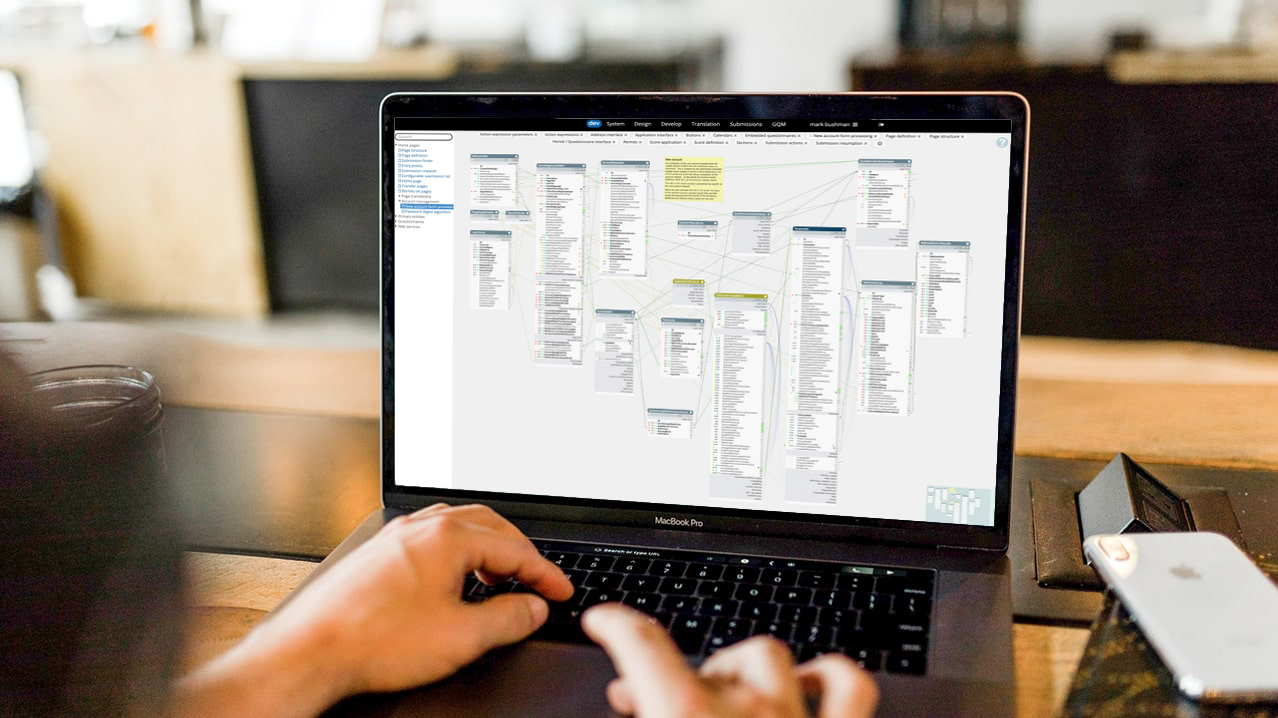Whilst recently applying a routine platform update to our clients' systems we were struck by the range of business areas that these applications support, and also that their ages varied from less than one year to eighteen years old. Nonetheless, the update brought them all completely up to date in terms of their support for browser and UI standards, database support and security practices.
2 min read
Still using Oracle Forms? It's time for an upgrade...
By Neil Connolly on Jan 8, 2023 10:45:00 AM
Oracle Forms has been around since before the days of client/server computing, and numerous Oracle Forms applications have been faithfully meeting business requirements for many years.
Topics: kinodb
1 min read
What can you build with the kinodb platform?
By Mark Bushman on Jul 8, 2022 9:00:00 AM
The kinodb development and deployment platform can be used to build just about any type of application that you may need.
We have customers from utility companies, rail infrastructure, local authorities, event organisers, and educational content providers, amongst many others. Their applications deliver on very different business requirements.
Topics: kinodb
3 min read
The relationship between monolithic applications and siloed data
By Dave Francis on Sep 28, 2021 11:38:00 AM
It is very easy to find yourself with some siloed data; a specific question may have been asked by the business and to answer the it, a data export from one of your core applications is required to conduct some analysis.
Topics: kinodb
4 min read
COTS or custom?
By Dave Francis on Sep 10, 2021 4:15:37 PM
You need a new business application - perhaps to replace a legacy or unsupported system, or to meet a new opportunity. Do you look for an off-the-shelf system which is the best fit, or have something built?
Topics: kinodb
2 min read
Filling in the gaps
By Dave Francis on Aug 4, 2021 8:30:00 AM
Most organisations have a varied IT estate, with applications that are relatively new, some maybe getting close to (or even past) needing to be retired, some maybe be custom and some maybe off-the-shelf. This is not an unfamiliar situation for many CIO’s.
Topics: kinodb
3 min read
Enterprise-grade platform solutions
By Dave Francis on Jul 9, 2021 2:34:00 PM
IT organisations are increasingly expected to be the source of a succession of silver bullets facilitating (or even driving) transformational change, whilst at the same time ensuring that commodity functions work seamlessly.
COVID-19 has only amplified this: new systems are required to enable remote working practices, systems need to be kept secure at the kitchen table, and bandwidth has never been in greater demand.
Topics: kinodb
2 min read
Microsoft Excel is not a database
By Dave Francis on May 6, 2021 4:29:00 PM
In October 2020 the NHS had a problem with losing data relating to COVID case reporting; there was an urgent business need to capture and manage data, so they built a database with Microsoft Excel.
However, Public Health England stated that 15,841 cases of COVID-19 went unreported between 25 September and 2 October; these were omitted from the daily figures.
Topics: kinodb
3 min read
What is case management?
By Dave Francis on Mar 9, 2021 11:45:14 AM
20 years-ago I was a caseworker in a central government department. So, for me, talking about case management, it is easy to think of paper “case files”. These were cardboard folders that would typically hold all correspondence, reference documents, decisions, minutes on the decision-making process; everything that you needed to know regarding the “case”.
Topics: kinodb LGP
3 min read
Avoiding a proliferation of applications
By Mark Bushman on Feb 5, 2021 10:26:00 AM
I read an article recently about how an organisation had recently rolled out six new apps in its fight against COVID-19.
At first glance, this appears impressive in showing how quickly they had created new services for their clients in a short period of time, but it raised a question: does this approach just encourage the proliferation of disparate systems that need to be maintained and supported?










